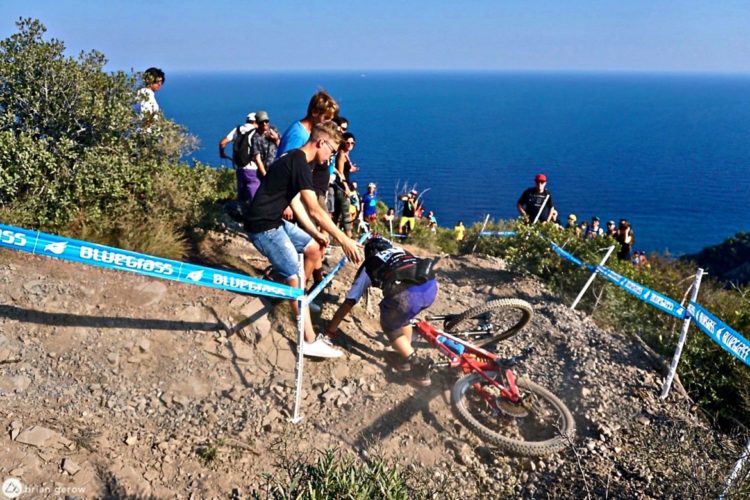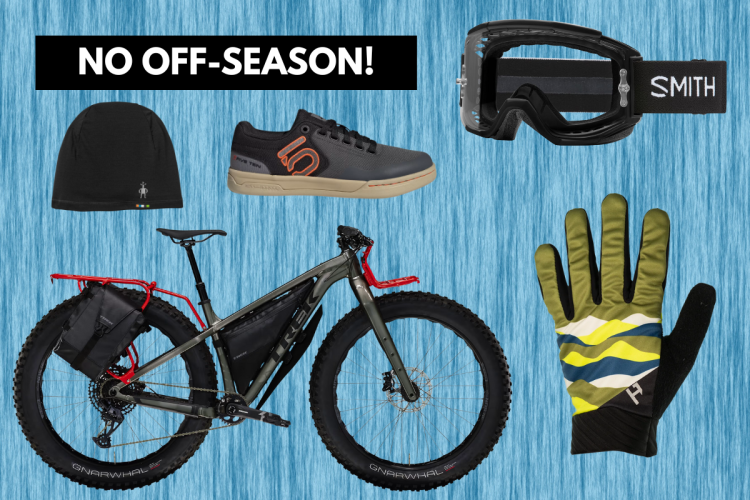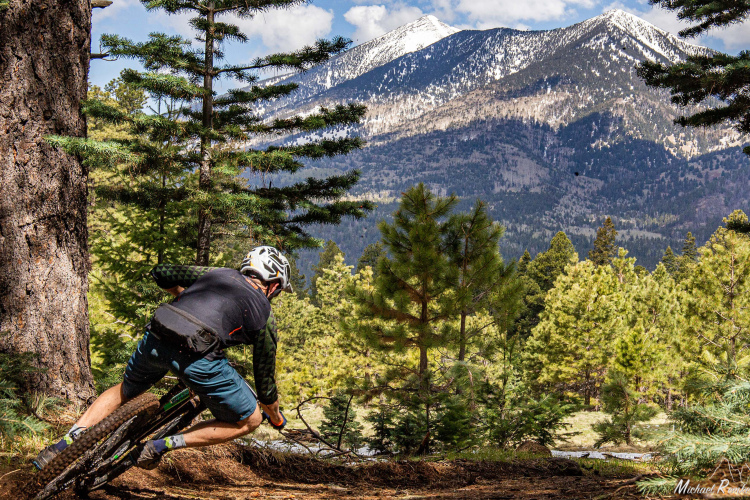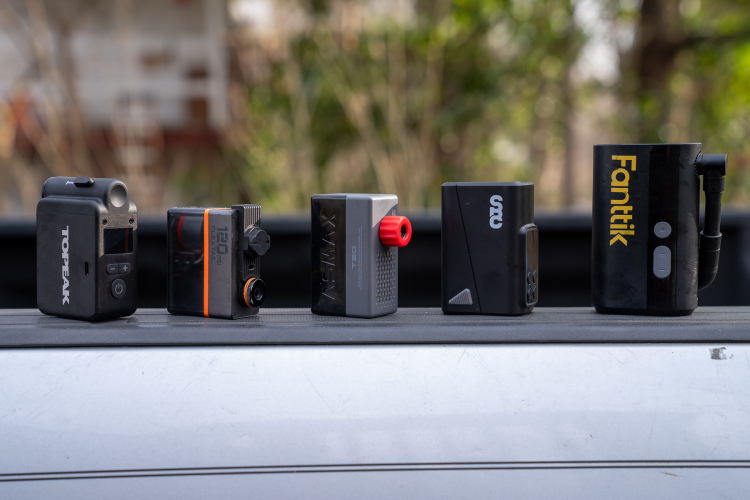In September 2013 Mark Wilson crashed on Porcupine Rim, taking a sharp rock a few inches below the rim of his helmet, sustaining a facial skull fracture, and developing a concussion that would evolve into Traumatic Brain Injury, or TBI. That accident would affect every facet of his life thereafter, compromising aspects of his job, his marriage, and his passion for the sport of mountain biking.
This is part 2 of his story. (Click here to read Part 1.)
“Eventually in 2014 I got back to normal in almost every function of life, and was cleared by the neurologist in May to resume normal activities and [be] off the meds. I bought two new helmets with more coverage, and rode slower and more carefully. I was feeling good until August, when the division I lead at work suffered a significant set back…. About 2 months into the process all the symptoms came back. I was back to half days with weakness, limited cognitive function, nausea, head pain, dizziness etc…. ” -Mark Wilson

TBI is more common in mountain biking than people think, though data is limited because many riders never seek medical care after a fall. Any blow to the head, even with a helmet on, puts a rider at risk for concussion and subsequent TBI. One 2009 study at Whistler published in the Journal of the Wilderness Medical Society showed that of the 1,759 patients that were treated for specific injuries at the clinic, 11.2%, or 197 patients, sustained a TBI. That is a lot! Other studies I’ve reviewed have varying statistics, but all of them point to the fact that head injuries in cycling are a major problem. Outside Magazine published a succinct online guide for athletes to assess one another in the field, which you may find helpful. TBI symptoms range from mild to severe, and several international scales are used to assess symptoms. The National Institutes of Health (NIH) define mild TBI symptoms as:
- Confusion
- Headache
- Lightheadedness
- Dizziness
- Blurred vision
- Ringing in the ears
- Tiredness or sleepiness
- A bad taste in the mouth
- A change in sleep habits
- Behavior or mood changes
- Trouble with memory, concentration, attention, or thinking
- Loss of consciousness lasting a few seconds to minutes
- Sensitivity to light or sound
- Nausea or vomiting (Source)
NIH also defines more severe TBI with similar symptoms, but they are generally worse, longer-lasting or permanent, and even life-threatening:
- Headache that gets worse or won’t go away
- Repeated vomiting or nausea
- Slurred speech
- Convulsions or seizures
- An inability to wake up from sleep
- Enlargement of the pupil (dark center) of one or both eyes
- Numbness or tingling of arms or legs
- Loss of coordination
- Increased confusion, restlessness, or agitation
- Loss of consciousness lasting a few minutes to hours

More information regarding TBI is available on the NIH website. Brain injuries are also well-known to cause life-altering mental health disorders such as depression, as seen extensively in veteran populations. I list these symptoms for you because, as a fellow rider, you should be able to recognize these signs and symptoms after any fall on a bike. They could save someone’s life.
As for Mark, he is back to riding, but the road to recovery has been filled with setbacks. Just last night I was riding behind him and he crashed and hit his head, which is what prompted me to finally consider this topic.

He has seen neurologists and other specialists several times over the past year, and has had multiple relapses that retard his concentration, made him vomit and become dizzy, and give him severe headaches. The worst part is chronic fatigue and lassitude. This has affected his ability to perform some of this job functions, and he occasionally gets overwhelmed and cannot focus when looking at complicated tasks. Mark took a voluntary demotion at work to reduce stress. He also has to take frequent sabbaticals from riding, especially if his symptoms start to affect his daily life. He often cannot handle jarring downhill runs. A remarkable rider both uphill and down, I’ve seen him blow everyone away one day, then struggle to keep up the next. It has been a frustrating convalescence, to say the least.

“From the day I had the head pain on, I experienced nausea, dizziness, fatigue, memory loss, weakness, lack of balance, irritability, lack of ability to focus and do complex or sometimes simple functions. I would ask my wife and kids the same things three or four times in a row because I would forget their first answer and their second and third as well. For two months I worked half days and was medicated for both pain and brain trauma.” -Mark Wilson
I have seen him take careful and painstaking steps to ride safely and remain an active mountain biker. Mark usually pedals a little slower these days, throttles back when he is not feeling 100%, wears armor, and typically takes less dangerous lines. Nothing wrong with that, and he still rides faster than most people I know. Almost immediately after I began testing the Bell Super 2R helmet, he purchased one, citing that, “it would have saved me over $12,000 in medical bills, and a lot of pain.”
As I mentioned in that article, a lot of fellow riders have elected to buy one after hitting their face hard. Personally, I’ve hit my head more than once, and was always shocked that I didn’t and couldn’t avoid it. Sometimes speed and gravity are stronger than your will and your reflexes. Despite all this, Mark has an unwavering, upbeat disposition. He credits some of his recovery to a diet rich in healthy fats, which the brain relies upon to cushion and potentiate electrical activity. He replaced sugary foods and cheap carbs with eggs, fish, nuts, avocados, lean meats, and veggies.
“At some point I put a cry out for help on Facebook. A longtime friend and nutritionist called me and asked what I was eating. I was eating crappy fast food because I was on the road a lot. She simply explained that my brain was made out of healthy fats and in order for it to heal, it needed foods with Omega 3 fats in it. I was so desperate to feel better and get healthy I was willing to try anything so I changed my diet… I was skeptical at first… [but] I felt better and I returned to normal health again. I lost 28 pounds in the process, and my fitness is as good as its been in more than 10 years.” -Mark Wilson
He also draws on support from family and friends, and from his faith.

As for his longterm prognosis, only time will tell. Some may argue that he should avoid mountain biking altogether, which would be a wise suggestion. On the other hand, I think a lot of us would have a difficult time giving up something we love so much. Notwithstanding the risks, all of his friends respect him and support him for electing to remain an active rider. Besides, all things considered, mountain biking is only one small piece of the risk of life. Mark is only one example of hundreds, perhaps thousands, of riders who have sustained a head injury and suffered chronic TBI symptoms.
The takeaway is that it is important to ride within your abilities, wear proper safety equipment, and know when to dial it back a notch and take a break. Even then, accidents can and will happen. Avoiding TBI injury is certainly preferable, but recognizing the signs of TBI after a crash on the trail may save you or your mates. For now, Mark is going to keep on riding, and not let TBI destroy him.
“It also showed me who my real friends were, the ones who reached out beyond biking. It made me thankful for good health care as well. Its been a long trial that I have learned many things from.” -Mark Wilson

Your turn: Have you or your friends ever hit your face or head while riding? Tell us your story.











12 Comments
Sep 21, 2015
All that to say, it's a really good thing to be cautious and aware of the consequences of our actions on the bike. Ride safe & ride smart folks!!
Sep 21, 2015
Sep 23, 2015
Sep 21, 2015
Mark, having ridden with you last month in Salida, I would say Paul's initial description of you--engaging, humble, talented--is still 100% true today! Glad to see that you're still riding (fast) but that you're taking the necessary precautions to make sure this doesn't happen again. Great example for everyone.
Sep 23, 2015
Sep 21, 2015
Sep 22, 2015
Sep 22, 2015
Sep 24, 2015
But as Mark knows, what is worst is the lingering TBI issues; loss of hearing, dizziness, short term memory that can be very poor, and not knowing what parts of my personality shift has effected others,
I still ride, but have a new 'hard wired' limiter, my wheels stay on the ground, if I get uneasy on the trail, I slow down or walk.
I know that another serious impact to my head could be devastating. Life and those I love are to precious to me, so I won't take any significant risky actions that really have very limited rewards.
I was riding behind someone last fall, on a relatively calm flow trail, who lost his line and went into a tree.
He fractured his neck. He is OK now, but again, we are delicate creatures, and this lifestyle can demonstrate that in devastating ways.
By the way, I am off to ride in Copper Harbor, MI next week, so don't feel bad for me. But I will be the guy with both wheels on the ground, cheering those who's wheels are off, smiling all day!
Sep 27, 2015
Sep 22, 2015
Sep 22, 2015